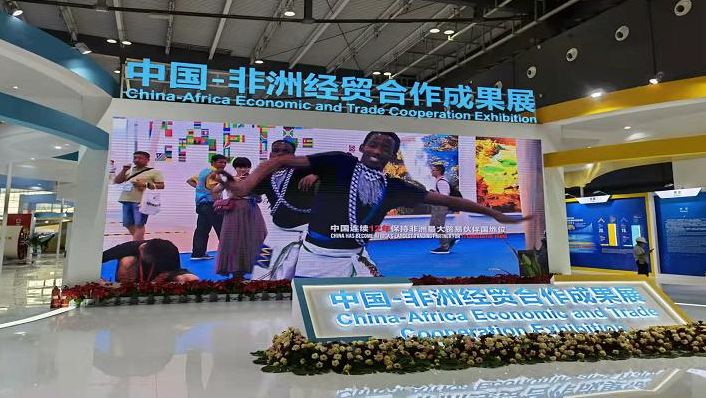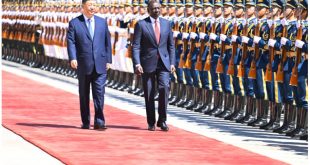By Africa China Review Staff Writer

At the opening ceremony of the Beijing Summit of the FOCAC held in September 2018, President XI Jinping proposed that China would launch 8 major initiatives in close collaboration with African countries, including a decision to open a China-Africa economic and trade expo in China.
In execution of this decision, the first China-Africa Economic and Trade Expo (CAETE) was held in 2019 in Changsha, Hunan Province. The second CAETE held in 2021 was also a success and attracted nearly 900 enterprises from 40 African countries and China.
This economic and trade expo has facilitated bilateral relations between China and numerous African countries and unleashed new potential for cooperation between the two sides. President Paul Kagame of Rwanda who spoke at the expo noted that FOCAC has led to trade deals for Rwandan companies supplying agricultural commodities to the Chinese market, among other things.
New Market Opportunities for African countries
Since the beginning of the COVID-19 pandemic, it has been imperative to promote e-commerce as most businesses and consumers are switching from making purchases from physical to online stores. This has given a strong impetus to the development of e-commerce.
Chinese and African companies have worked together to encourage the export of African specialties to China through cross-border e-commerce platforms during the COVID-19 pandemic. As of 2019, exports from African countries to China were estimated at 78.7billion U.S. dollars. The value declined slightly in comparison to 2018, when exports from Africa summed up to 80.3 billion U.S. dollars.
Given the widespread perception that China still benefits more from the relationship than its African partners, the e-commerce space is an excellent opportunity for African countries to leverage their power and set up relevant mechanisms to promote e-commerce and tap into the Chinese market. China has proven to be a good and stable market while other markets were destabilized during the pandemic.
Non-resource African products such as dried chili peppers, coffee, and peanuts have become popular with Chinese consumers, and as a result, China has decided to increase imports. This is also another opportunity for the economic development of African countries. By importing more of these non-resource commodities and finished products, African countries can narrow down the trade imbalance which is logically in favor of China due to its higher industrial production capacity.
Steps Forward
It is therefore up to African countries to key into policies that create opportunities for African entrepreneurs to benefit from the Chinese vast market. If successfully implemented, African countries will eventually be able to close the gap and begin their ownmanufacturing process which would enable them to add value to their raw materials, and create jobs and expertise.
For comments or opinion write to us on info@africachinareview.com
You can also follow us on twitter account @africachinarev
 Africa -China Review Africa -China Cooperation and Transformation
Africa -China Review Africa -China Cooperation and Transformation
